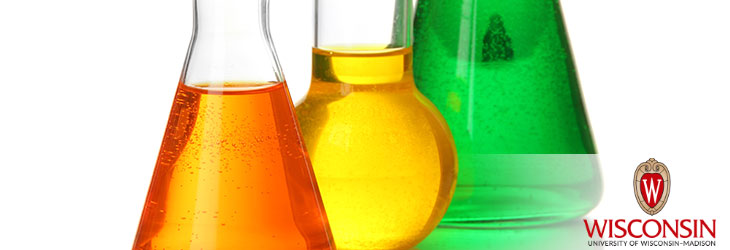Materials & Chemicals

Nylon-3 Polymers Active Against Clostridium Difficile
WARF: P150214US02
Inventors: Samuel Gellman, Runhui Liu, Bernard Weisblum, Shonna McBride
The Wisconsin Alumni Research Foundation (WARF) is seeking commercial partners interested in developing nylon-3 polymers to treat and prevent C. difficile infections via oral therapeutic or disinfectant formulations.
Overview
Clostridium difficile is a Gram-positive, endospore-forming anaerobe that causes life-threatening intestinal infections. These infections result in more than 14,000 deaths and billions of dollars in healthcare costs every year in the U.S. alone. The bacteria can survive as dormant spores outside of a host and, once ingested, germinate into toxic vegetative cells.
C. difficile has been listed by the CDC as the highest level threat of antibiotic resistance in the nation. Current treatment consists of metronidazole, vancomycin or, most recently, fidaxomicin. Unfortunately these antibiotics are not always effective and recurrence of disease occurs in many patients.
To combat this escalating challenge, new treatment strategies are being explored. Synthetic polymers that mimic the natural antimicrobial properties of host-defense peptides are one promising, cost-effective solution.
C. difficile has been listed by the CDC as the highest level threat of antibiotic resistance in the nation. Current treatment consists of metronidazole, vancomycin or, most recently, fidaxomicin. Unfortunately these antibiotics are not always effective and recurrence of disease occurs in many patients.
To combat this escalating challenge, new treatment strategies are being explored. Synthetic polymers that mimic the natural antimicrobial properties of host-defense peptides are one promising, cost-effective solution.
The Invention
UW–Madison researchers and collaborators at Emory Medical School have developed nylon-3 polymers and copolymers active against C. difficile. The polymers have been shown to inhibit outgrowth/growth of the bacteria in spore and vegetative form.
Applications
- Therapeutic agents to treat and prevent C. difficile infections
- Oral formulation
- Surface treatment (disinfectant)
Key Benefits
- New treatment option against deadly, drug-resistant bacteria
- Outperform front-line drug vancomycin at inhibiting spore outgrowth
- Cheaper to synthesize than peptides
- Able to resist proteolytic degradation
Stage of Development
The surface treatment application will likely need additional testing to support efficacy claims and consumer safety requirements.
The therapeutic antibiotic treatment will require preclinical and clinical testing to support regulatory approval, but legislation recently introduced in congress (Promise for Antibiotics and Therapeutics for Health Act, 2014) may accelerate FDA approval.
The therapeutic antibiotic treatment will require preclinical and clinical testing to support regulatory approval, but legislation recently introduced in congress (Promise for Antibiotics and Therapeutics for Health Act, 2014) may accelerate FDA approval.
Additional Information
For More Information About the Inventors
Publications
- Liu R., Suarez J.M., Weisblum B., Gellman S.H. and McBride S.M. 2014. Synthetic Polymers Active Against Clostridium difficile Vegetative Cell Growth and Spore Outgrowth. J. Am. Chem. Soc. 136, 14498.
Tech Fields
For current licensing status, please contact Rafael Diaz at [javascript protected email address] or 608-960-9847